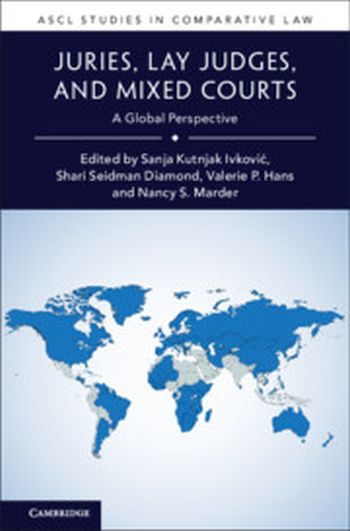
Although most countries around the world use professional judges, they also rely on lay citizens, untrained in the law, to decide criminal cases. The participation of lay citizens helps to incorporate community perspectives into legal outcomes and to provide greater legitimacy for the legal system and its verdicts. This book offers a comprehensive and comparative picture of how nations use lay people in legal decision-making. It provides a much-needed, in-depth analysis of the different approaches to citizen participation and considers why some countries' use of lay participation is long-standing whereas other countries alter or abandon their efforts. This book examines the many ways in which countries around the world embrace, reject, or reform the way in which they use ordinary citizens in legal decision-making.